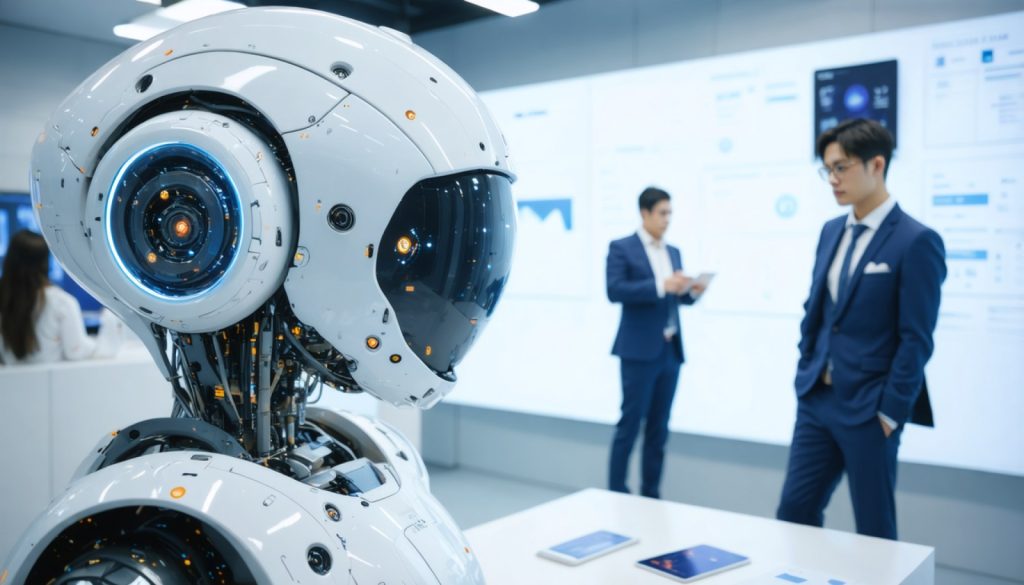
- South Korea is a key player in the global artificial intelligence landscape, with 151 innovative startups leading advancements across infrastructure, models, and services/solutions.
- The industry’s focus has shifted from consumer-centric applications to sophisticated B2B solutions, emphasizing operational efficiency and industry-specific challenges.
- Korean startups have a strategic advantage in the ‘Ops & Solutions’ sector, crucially contributing to the global digital transformation by simplifying AI integration across various industries.
- These startups, renowned for their proprietary technologies, compete with global AI giants, influencing global trends and shaping the future narrative of AI.
- Data from comprehensive research underscores the strategic significance of these startups, providing critical insights for stakeholders in the AI ecosystem.
- The burgeoning AI industry in South Korea indicates a future where AI radically transforms industries and drives unprecedented innovation.
South Korea’s metamorphosis in the realm of artificial intelligence is nothing short of extraordinary. In the bustling streets of Seoul, tech startups are not just participating in the AI race—they’re setting the pace. A recent deep dive unveils that 151 cutting-edge startups are not simply developing tools but are revolutionizing the way businesses think about AI. These startups are categorized into areas such as infrastructure, models, and services/solutions, embodying the nation’s proactive embrace of technological evolution.
The heartbeat of this transformation lies in generative AI. Startups that once catered to end consumers with flashy applications are now pivoting towards nuanced B2B solutions. This shift marks a significant change from creating consumer-centric flashy applications to developing robust, enterprise-driven AI tools. The pivot signifies a maturing industry laser-focused on enhancing operational efficiency and tackling industry-specific challenges. By shifting gears, these startups are tapping into high-margin opportunities, crafting bespoke AI solutions that promise to catapult companies toward unprecedented productivity.
An illuminating trend from the exploration is Korean startups’ strategic grip on the ‘Ops & Solutions’ sector. It highlights their vital role in the global digital transformation narrative. By dissolving the barriers to AI adoption, these startups foster a universal landscape where AI becomes an integral part of various industries, from healthcare to logistics.
In the global arena, Korean startups are not merely players—they’re innovators. Armed with proprietary technologies, they stand shoulder to shoulder with international giants, their precision-tuned solutions echoing South Korea’s historical insistence on innovation. As we peer into the future, the question is not how global trends will influence Korean startups, but how these startups will shape the future of AI on a global scale.
The narrative crafted by these bold Korean startups is underscored by meticulous research, such as the comprehensive report from the Startup Alliance. The insights drawn from this report serve as a north star for stakeholders navigating the dynamic tides of AI evolution. The report itself becomes a critical touchpoint for policymakers, investors, and tech enthusiasts eager to understand the full scope of South Korea’s AI landscape.
What emerges from the data is a new understanding: As AI continues its relentless march into the core of modern industries, South Korea’s startups are silently penning the next chapter of innovation. These audacious endeavors are hallmarks of a broader movement—one that signals a future where AI reshapes the very fabric of industry.
The AI Revolution: How South Korean Startups are Leading the Charge
The Rise of South Korean AI Startups: A Blueprint for Global Leadership
South Korea’s metamorphosis in the realm of artificial intelligence (AI) is not just remarkable; it is a showcase of strategic innovation and visionary entrepreneurship. With 151 advanced startups redefining AI, South Korea is setting a global standard in AI technology development. These startups are categorized into infrastructure, models, and services/solutions, embodying the nation’s proactive embrace of technological evolution. Here’s an in-depth analysis of South Korea’s influence on the global AI landscape, drawing on various facets such as industry trends, strategic pivots, and insights from experts.
Strategic Pivots in AI Development
A key shift in South Korean startups is the transition from consumer-focused AI applications to enterprise-driven solutions. This signifies a maturation of the industry, prioritizing operational efficiency and addressing industry-specific challenges. By crafting bespoke AI solutions, these companies are exploring high-margin opportunities and boosting productivity across sectors.
Industry Trends and Predictions
1. Generative AI’s Role: Initially focused on consumer applications, South Korean startups now leverage generative AI to solve complex business problems. This strategy underlines a movement toward creating sophisticated AI frameworks that operationalize data insights.
2. Global Competitiveness: Equipped with proprietary technologies, South Korean AI innovators stand on par with international giants, significantly impacting sectors like healthcare, logistics, and finance.
3. AI in Healthcare: AI applications in South Korean healthcare are gaining traction, focusing on predictive diagnostics and personalized medicine. According to a report from McKinsey & Company, AI in healthcare can reduce costs by enhancing decision-making and streamlining operations.
Pros and Cons Overview
Pros:
– Innovation Leaders: South Korea’s startups are at the forefront of AI innovation, driving substantial industry changes.
– Advanced Tech Ecosystem: A well-established tech infrastructure supports rapid prototyping and deployment of AI solutions.
– Government Support: Strategic government initiatives and funding programs bolster the AI ecosystem.
Cons:
– Resource Intensity: High capital investment in R&D may pose challenges for smaller startups.
– Global Competition: Intense competition from established global AI players can create market entry barriers.
Actionable Recommendations for AI Enthusiasts and Investors
– For Entrepreneurs: Focus on niche sectors where AI can provide significant competitive advantages, such as healthcare technology or smart manufacturing.
– For Investors: Consider funding startups that offer unique AI solutions with scalable potential, as these firms are poised for exponential growth.
– For Policymakers: Implement policies that ease access to funding and resources, and foster international collaborations to maximize innovations in AI.
Real-World Use Cases and Future Insights
– Logistics Optimization: AI-driven solutions are revolutionizing supply chain logistics, enhancing inventory management and delivery efficiency.
– Smart Manufacturing: With the integration of AI, South Korean manufacturers improve production line efficiency, reduce waste, and enhance quality control.
The South Korean AI Landscape: Insights and Predictions
Looking forward, South Korea’s AI startups will likely continue influencing global AI trends. These startups are pivotal in evolving AI applications, especially in industries like healthcare and logistics, where precision and efficiency are paramount. By tapping into unique, high-growth sectors, South Korea positions itself as a key player in the global AI race.
For more insights into technological advancements and innovative startups in South Korea, visit the Startup Alliance Korea.
As AI reshapes industries worldwide, South Korea’s AI pioneers are scripting a future where AI is intrinsic to every facet of business and everyday life. Stay informed, stay ahead, and watch as these innovations unfold.



